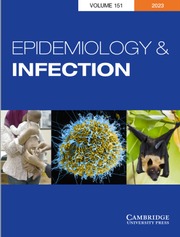Article contents
Hotting-up the complement-fixation test
Published online by Cambridge University Press: 19 October 2009
Summary
A detailed investigation into the effect of modifying the incubation temperature of the complement-fixation (CF) test is described. For varicella-zoster virus cytomegalovirus and rubella virus, increasing the incubation temperature progressively increased the sensitivity of the CF test to reach a maximum at 15°C, at which temperature the geometric mean titre of seropositive samples was significantly greater than that found at 4°C. For these three viruses, each serum shown to contain IgG antibodies by ultrasensitive radioimmunoassay procedures was detected by CF following incubation at 15°C. No false-positive reactions occurred at 15°C, but it was our impression that anticomplementary activity was enhanced at this temperature. Significant increases in antibody titre at 15°C were also seen when measles virus, respiratory syncytial virus, adenovirus and Mycoplasma pneumoniae were employed as CF antigens. The results demonstrate that the CF test should be performed at 15°C if optimum sensitivity is to be achieved. The ability of the test to detect significant rises in antibody titre was not impaired at the higher incubation temperature.
Information
- Type
- Research Article
- Information
- Copyright
- Copyright © Cambridge University Press 1983
References
REFERENCES
- 11
- Cited by

